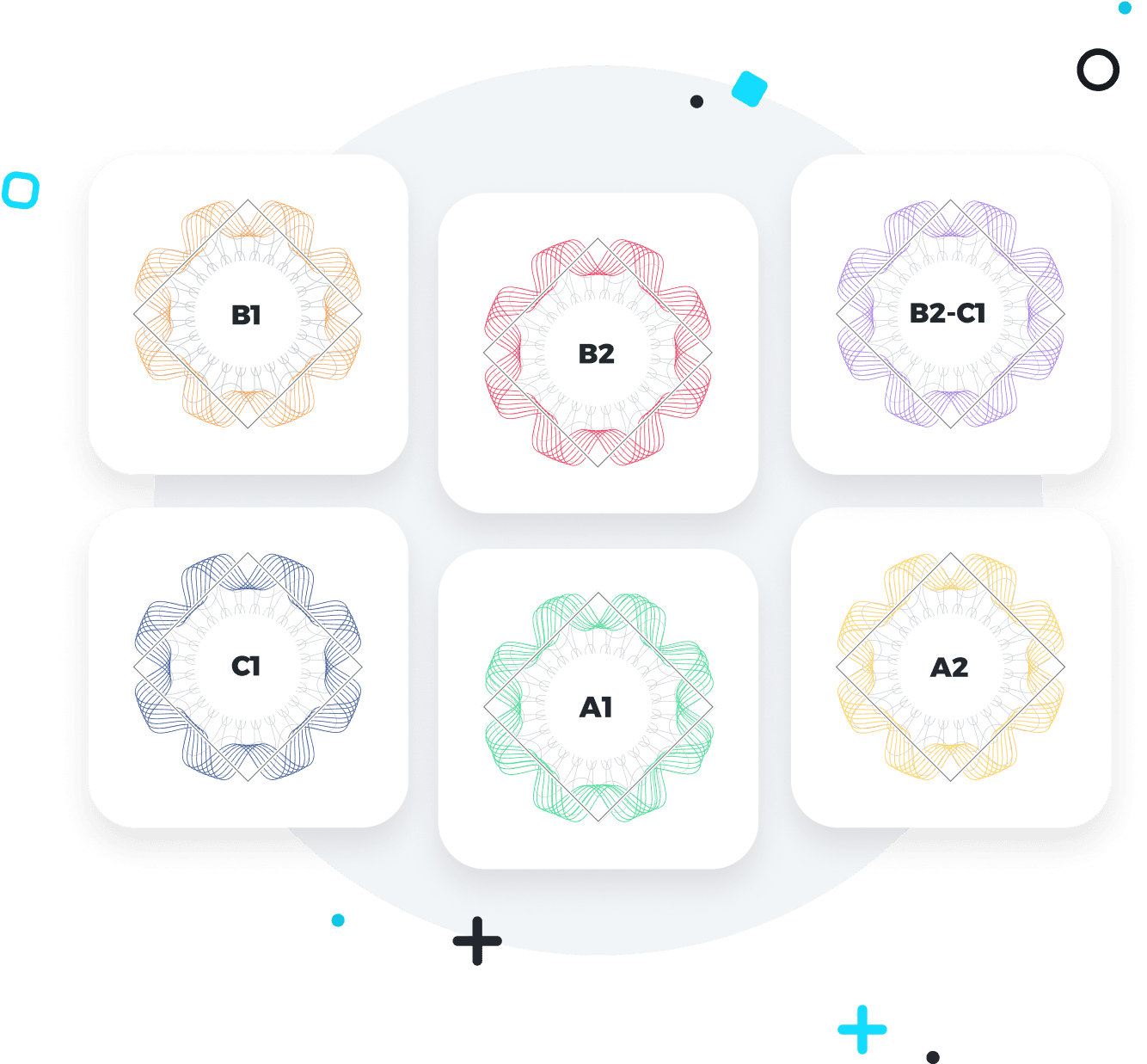Futuro perfeito contínuo em inglês
Encontre todas as chaves para usar o future perfect progressive, com exemplos claros e exercícios. Inscreva-se na ABA English e desfrute todos os dias de uma nova videoaula de gramática gratuita
Neste artigo, vamos revisar a estrutura do future perfect progressive em inglês, em que consiste e quais são seus usos. Veremos o tempo verbal em orações afirmativas, negativas e interrogativas, assim como as diferenças com o future perfect.
O que é e quando usar o futuro perfeito contínuo?
O future perfect progressive, também chamado de future perfect continuous, é o tempo verbal onde usamos will have been. É empregado para narrar ações que começaram há um tempo indeterminado e ainda não se concluíram no futuro do falante.
Em outras palavras, usamos o future perfect continuous para falar ações que estão acontecendo no futuro, mas ainda não começaram no momento da fala. Normalmente, estas orações são complementadas por conjunções de tempo.
Exemplos:
- Eliza will have been married for five years by the time the baby is born. (Eliza terá estado casado por cinco anos quando o bebê nascer)
- George will have been working in the library for half his life when he gets his degree. (George terá estado trabalhando na biblioteca metade da sua vida quando receber seu diploma)
+30 MILHÕES DE ALUNOS
Junte-se à escola digital de inglês
mais grande do mundo e aprenda inglês
Estrutura do futuro perfeito progressivo (will have been)
Para construir orações no future perfect continuous usamos o verbo auxiliar modal will, seguido da construção have been, o verbo no gerúndio para indicar a continuidade da ação e, por fim, o complemento.
Vejamos este detalhe para as orações afirmativas, negativas e interrogativas.
Future perfect continuous no afirmativo
Para construir orações afirmativas no future perfect continuous, indicamos o sujeito seguido do will have been, o verbo principal no gerúndio e, por fim, o complemento da oração.
A estrutura gramatical fica a seguinte:
Sujeito + will + have been + verbo(ing) + complemento
Exemplos:
- They will have been together for two years by the time he finishes college. (Eles terão estado juntos por dois anos quando ele terminar a faculdade)
- My lawyer will have been fully informed when you arrive. (Meu advogado terá sido totalmente informado quando você chegar)
Futuro perfecto continuo no negativo
No future perfect continuous, a forma negativa é obtida negando o auxiliar will (will not ou won’t), de forma abreviada).
A estrutura das orações neste tempo é a seguinte:
Sujeito + will not (won’t) + have been + verbo(ing) + complemento
Exemplos:
- She won’t have been studying until I come home. (Ela não terá estado estudando até que eu chegue em casa)
- They won’t have been dancing all night. (Eles não terão estado dançando a noite inteira)
Futuro perfeito contínuo interrogativo
Para construir orações interrogativas usando o future perfect continuous, colocamos o verbo auxiliar will antes do sujeito na oração e, caso ela seja negativa, a negação recai sobre este auxiliar.
Vejamos então a estrutura gramatical:
Will /won’t + sujeito + have been + verbo(ing) + complemento + ?
Exemplos:
- Will you have been playing long when I arrive? (Você terá estado jogando durante muito tempo quando eu chegar?)
- Won’t the TV have been working by then? (A TV não terá estado funcionando até lá?)
Já conhece seu
nível de inglês?
Comece o teste
Cadastre-se em nossa página e acesse o teste de nível gratuito. Em poucos minutos você conhecerá seu nível e poderá continuar progredindo no curso.

Diferença entre o future perfect continuous e o future perfect simples
À primeira vista, pode haver alguma confusão na diferenciação entre o uso do future perfect continuous e do future perfect.
Mas enquanto o primeiro fala sobre ações que começaram em um tempo futuro e estão ocorrendo quando os eventos estão sendo narrados, o future perfect serve para falar sobre acontecimentos que têm sua origem no futuro, mas já terão sido finalizados para falante no futuro posterior ao inicial.
Vejamos isto comparando as estruturas gramaticais na seguinte tabela:
| Tempo Verbal | Estrutura | Exemplo |
| Future perfect continuous | Sujeito + will + have been + verbo(ing) + complemento | When you cut the cake, I will have been filming. (Quando você cortar o bolo, eu terei estado filmando) |
| Future perfect simple | Sujeito + will + have + verbo no passado + complemento | When you cut the cake, I will have filmed. (Quando você cortar o bolo, eu terei filmado) |
Orações no futuro perfeito progressivo
- By this time tomorrow, I will have been leaving. (A esta hora amanhã, eu estarei saindo.)
- Next month, she will have been painting for 5 years. (No próximo mês, ela terá estado pintando por 5 anos.)
- By the end of this pregnancy, Shania won’t have been gaining enough weight. (Até o final desta gravidez, Shania não terá estado ganhando peso suficiente)
- In December, he will not have been building his house for even a year. (Em dezembro, ele não terá estado construindo sua casa por nem um ano.)
- How long will they have been knocking at the door? (Por quanto tempo eles terão estado batendo na porta?)
- Will you have been leaving when my parents come? (Você terá estado saindo quando meus pais chegarem?)
Exercícios para praticar o future perfect progressive
Exercícios no afirmativo
Vamos colocar em prática o que você aprendeu até agora com o future perfect continuous.
Nesta seção, preencha os espaços em branco com a forma correta do verbo entre parênteses para formar orações no future perfect continuous:
- The students __________ (present) the exam when the school bus arrives.
- The candidate __________ (expose) his proposal when the town assembly begins by this time tomorrow.
- In June next year, I _________ (live) in this town for twelve years.
- I ________ (celebrate) my fifty-year anniversary when my daughter returns.
- They __________ (audit) my company for two weeks when I come back from vacation.
Respostas:
- will have been presenting
- will have been exposing
- will have been living
- will have been celebrating
- will have been auditing
Exercícios no negativo
Complete as orações negativas no future perfect continuous utilizando o verbo que está entre parênteses:
- When we arrive at the airport, the plane ________ (leave).
- When Sonia graduates from the university, she _________ (work) in the hospital for a long time.
- I ___________ (travel) around Europe for three months by the end of the summer.
- Daniel __________ (retire) by this time next year.
- The two families ________ (reconcile) with dessert at the engagement party.
Respostas:
- will not (won’t) have been leaving.
- will not (won’t) have been working.
- will not (won’t) have been traveling.
- will not (won’t) have been retiring.
- will not (won’t) have been reconciling.
Exercícios no interrogativo
Forme orações interrogativas no future perfect continuous usando as palavras-chave indicadas a seguir:
- The children/attend/school when the appointment is scheduled.
- Paul/dance/with his partner for enough time by the time the contest begins.
- The protesters/clear/the roads by nightfall.
- The Johnssons/live/in the same neighborhood next fall.
- Vivian and Andrew/not speak/to each other at the party.
Respostas:
- Will the children have been attending school when the appointment is scheduled?
- Will Paul have been dancing with his partner for enough time when the contest begins?
- Will the protesters have been clearing the roads by nightfall?
- Will the Johnssons have been living in the same neighborhood next fall?
- Will Vivian and Andrew not have been speaking to each other at the party?
Links úteis


























